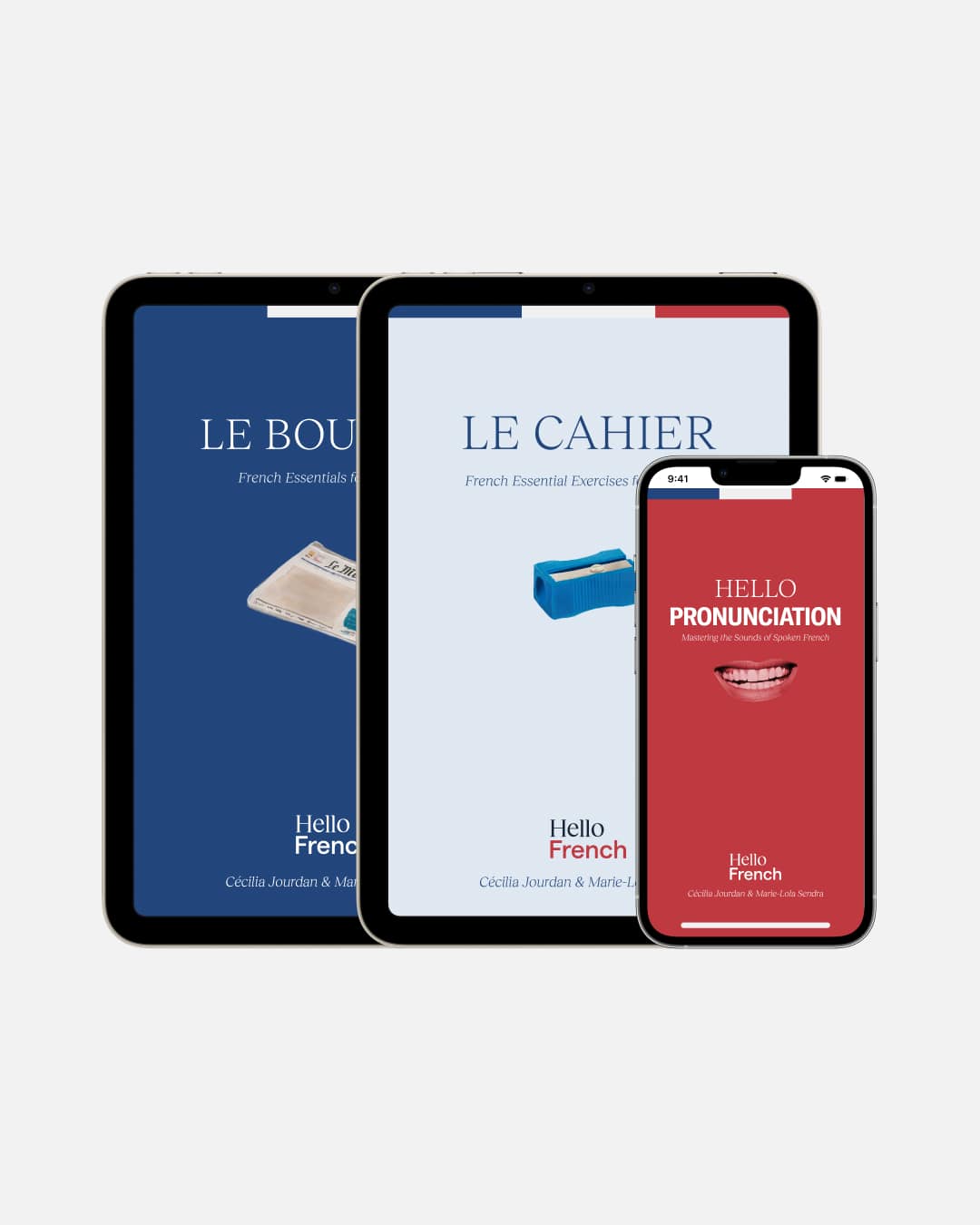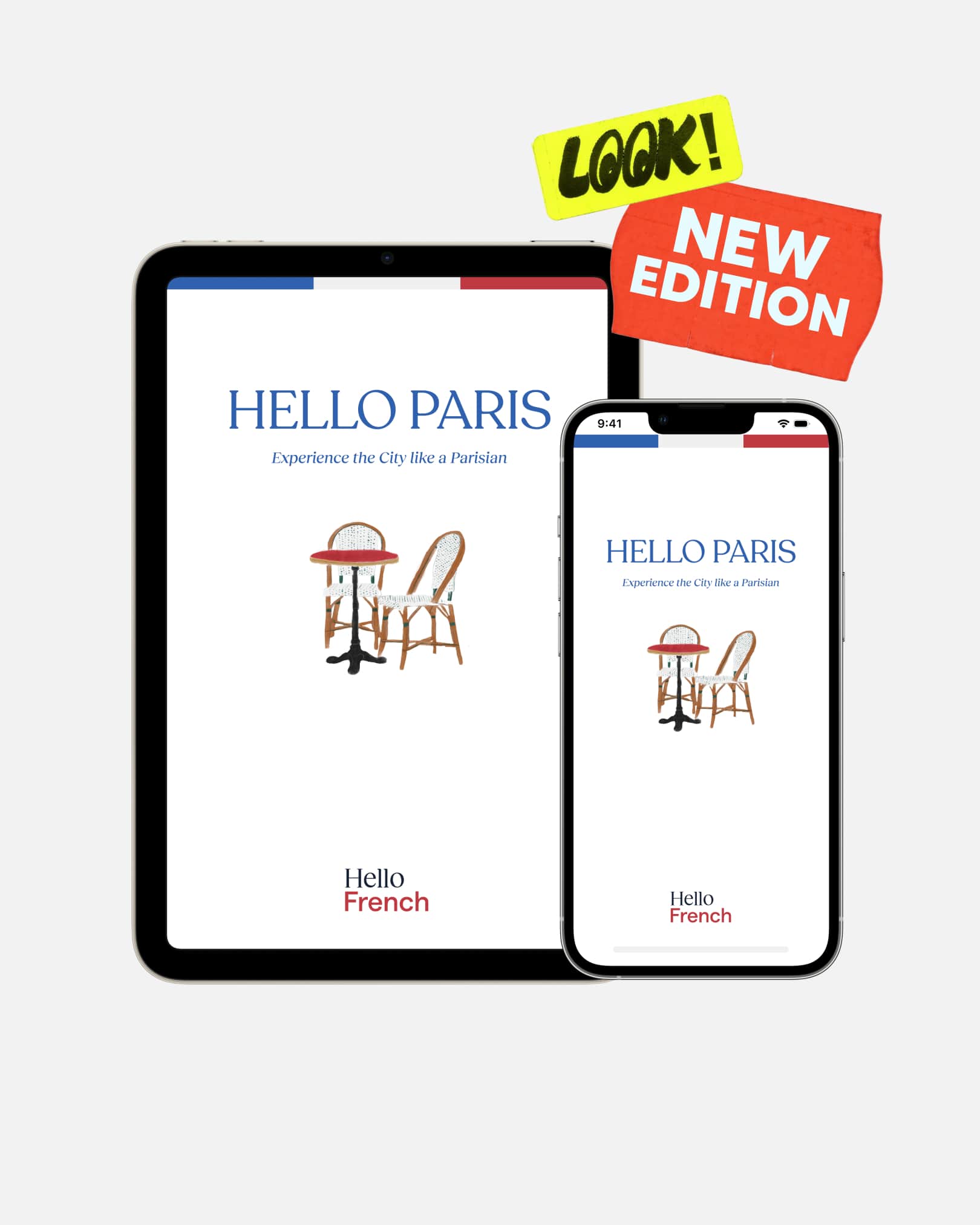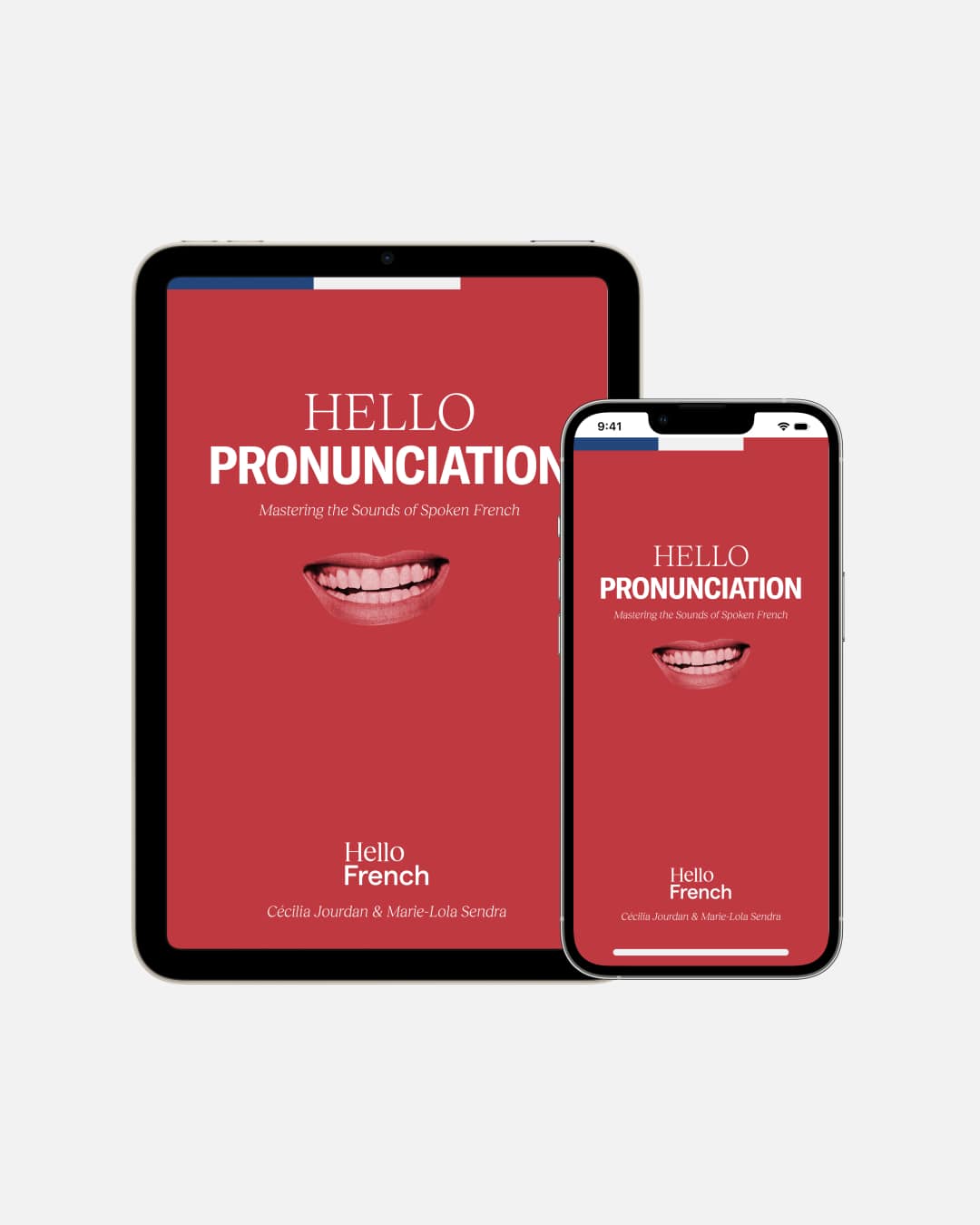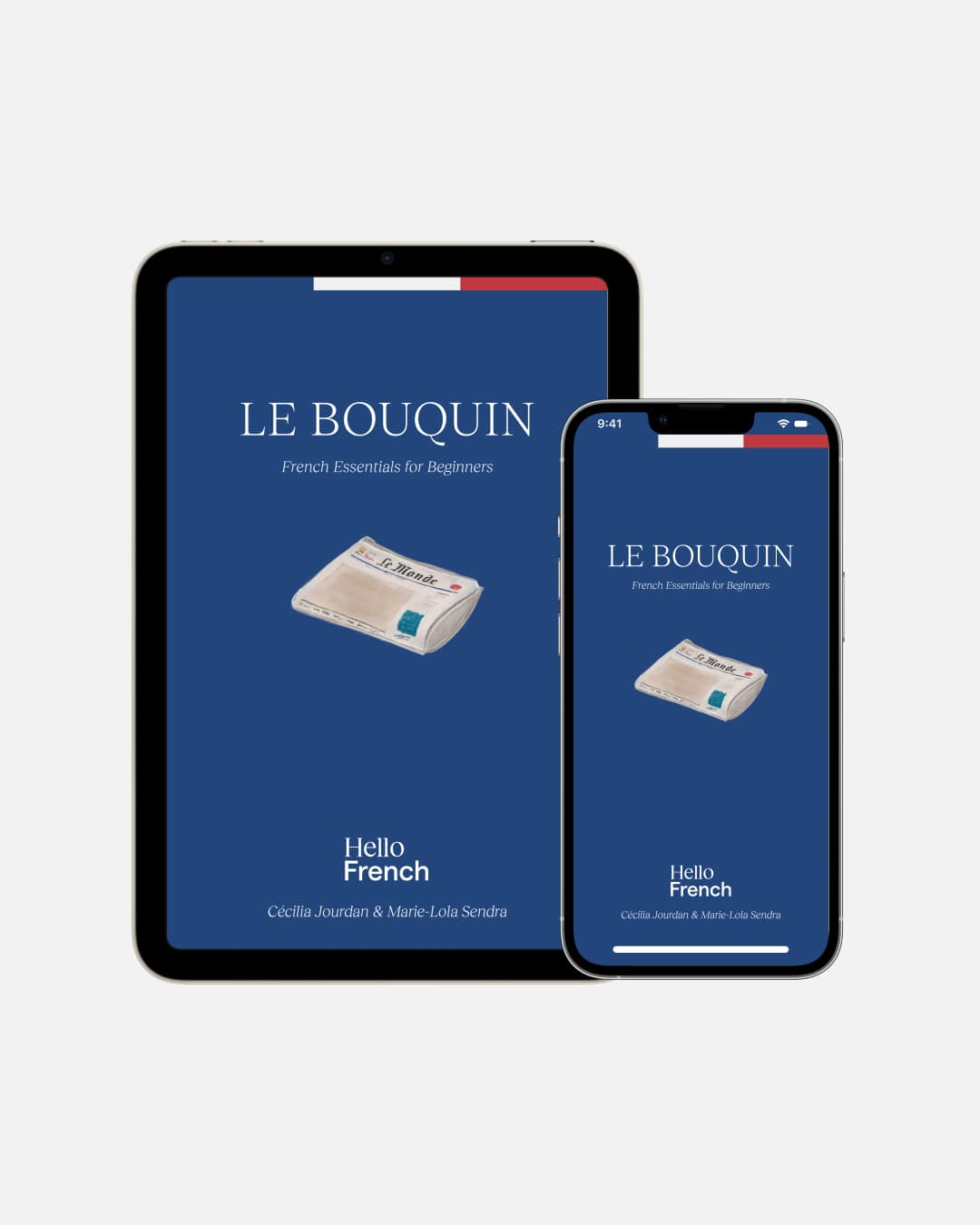
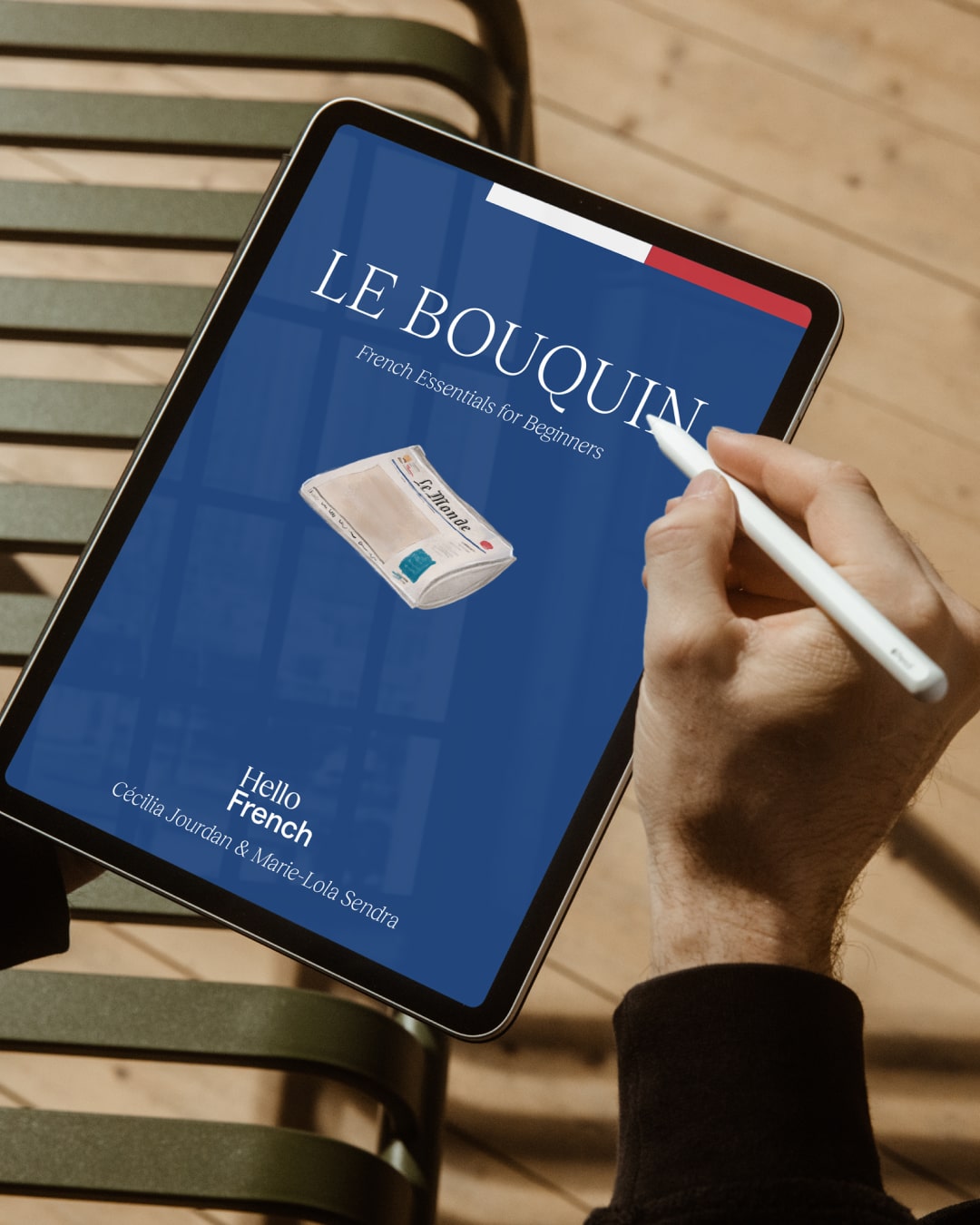
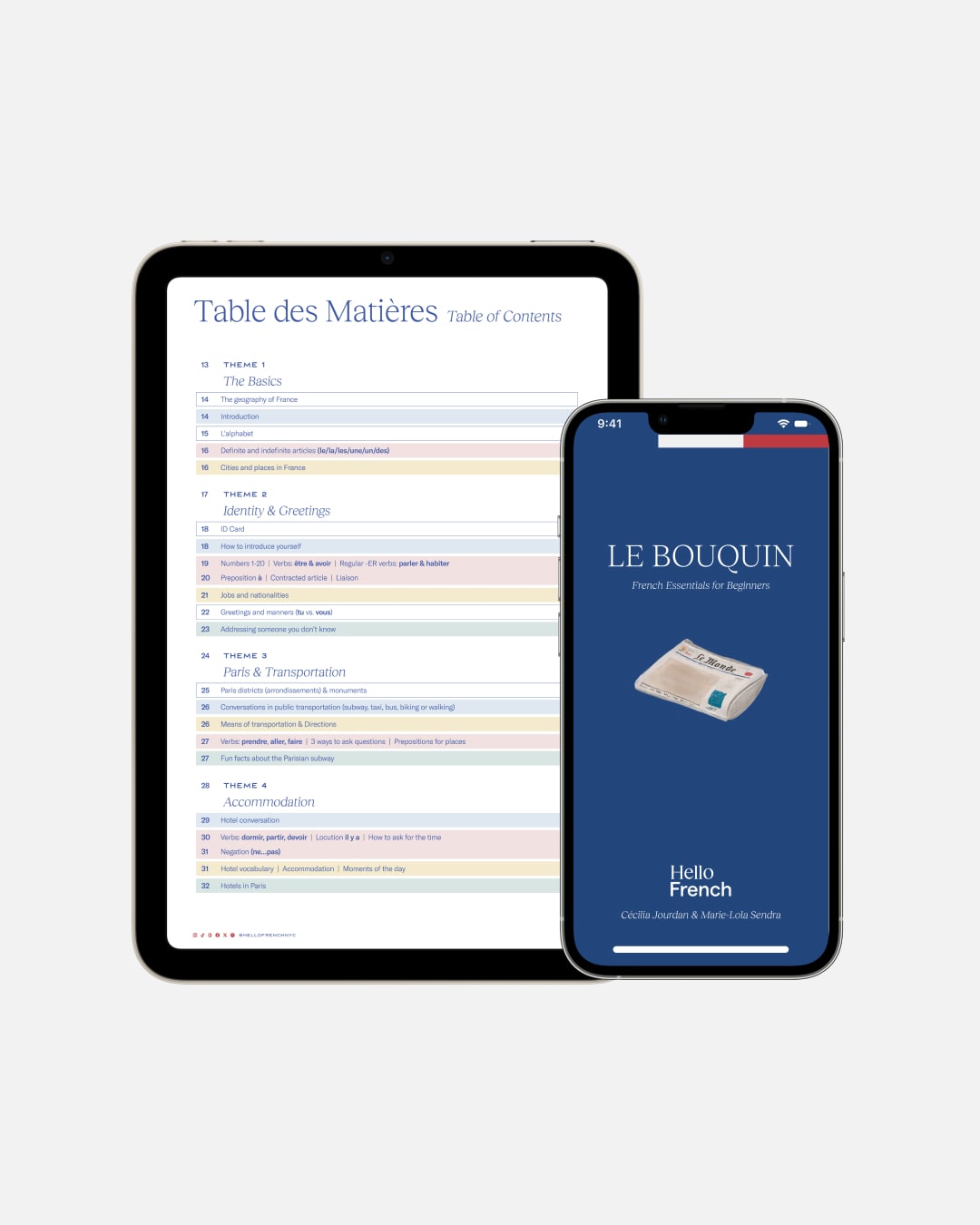
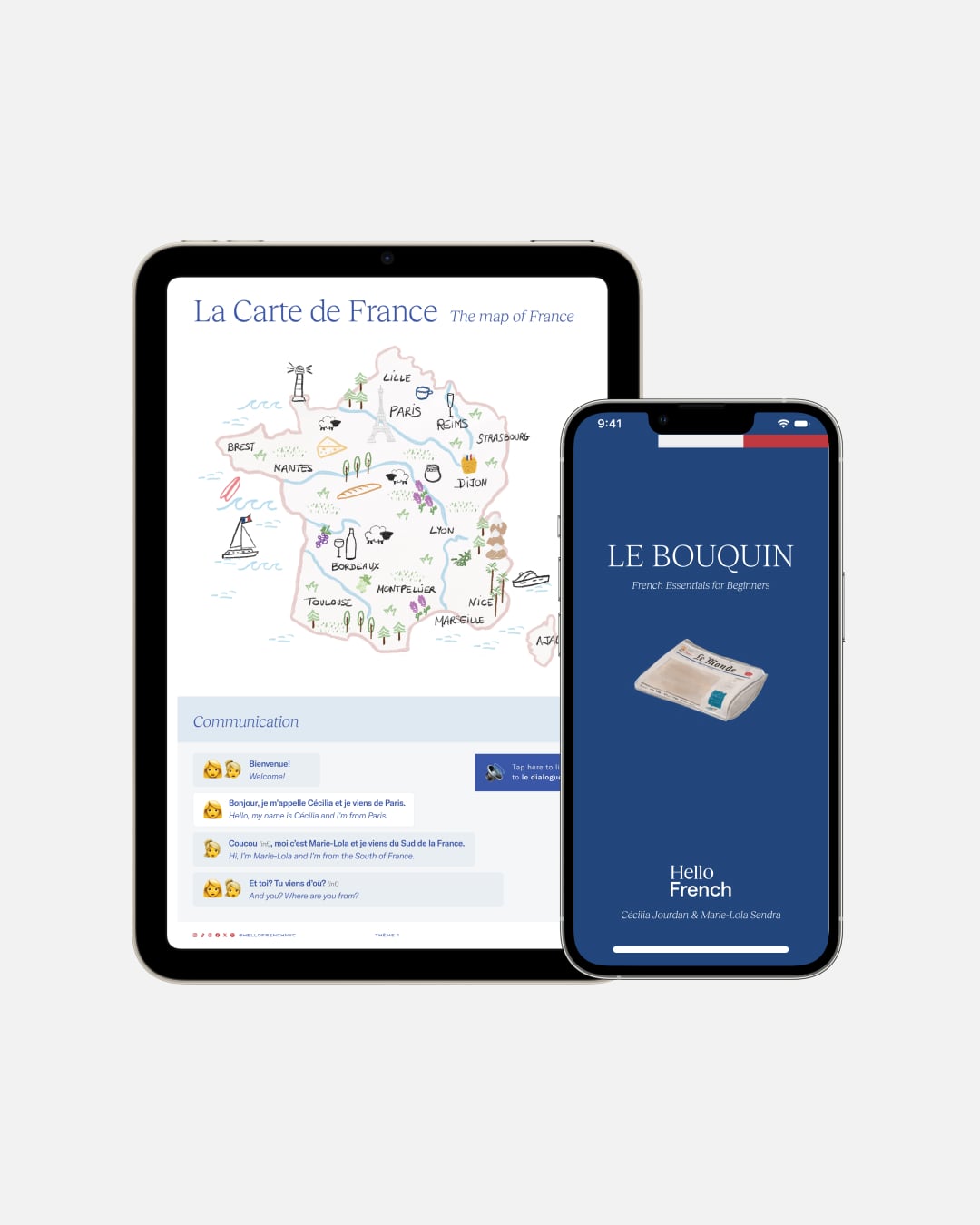
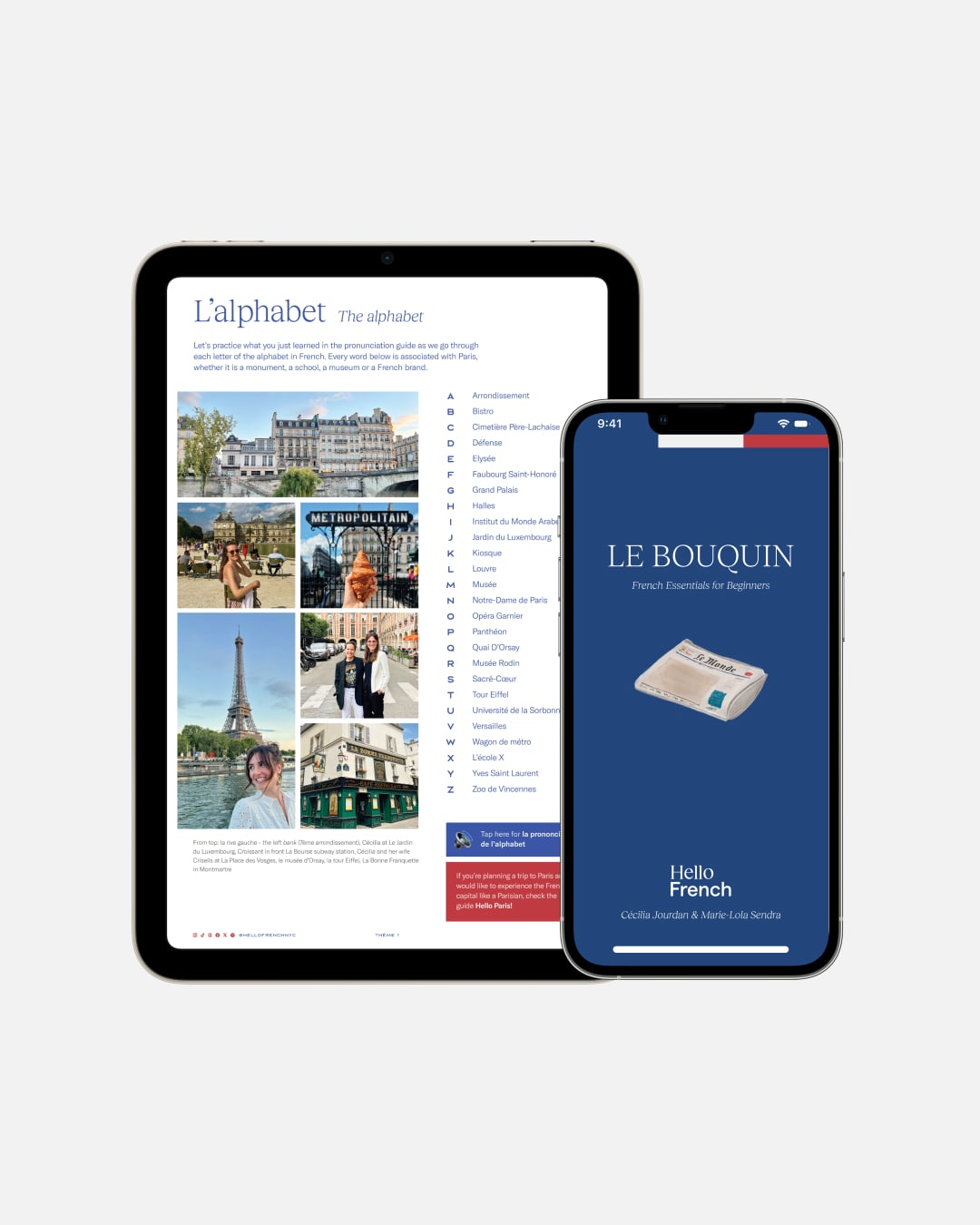
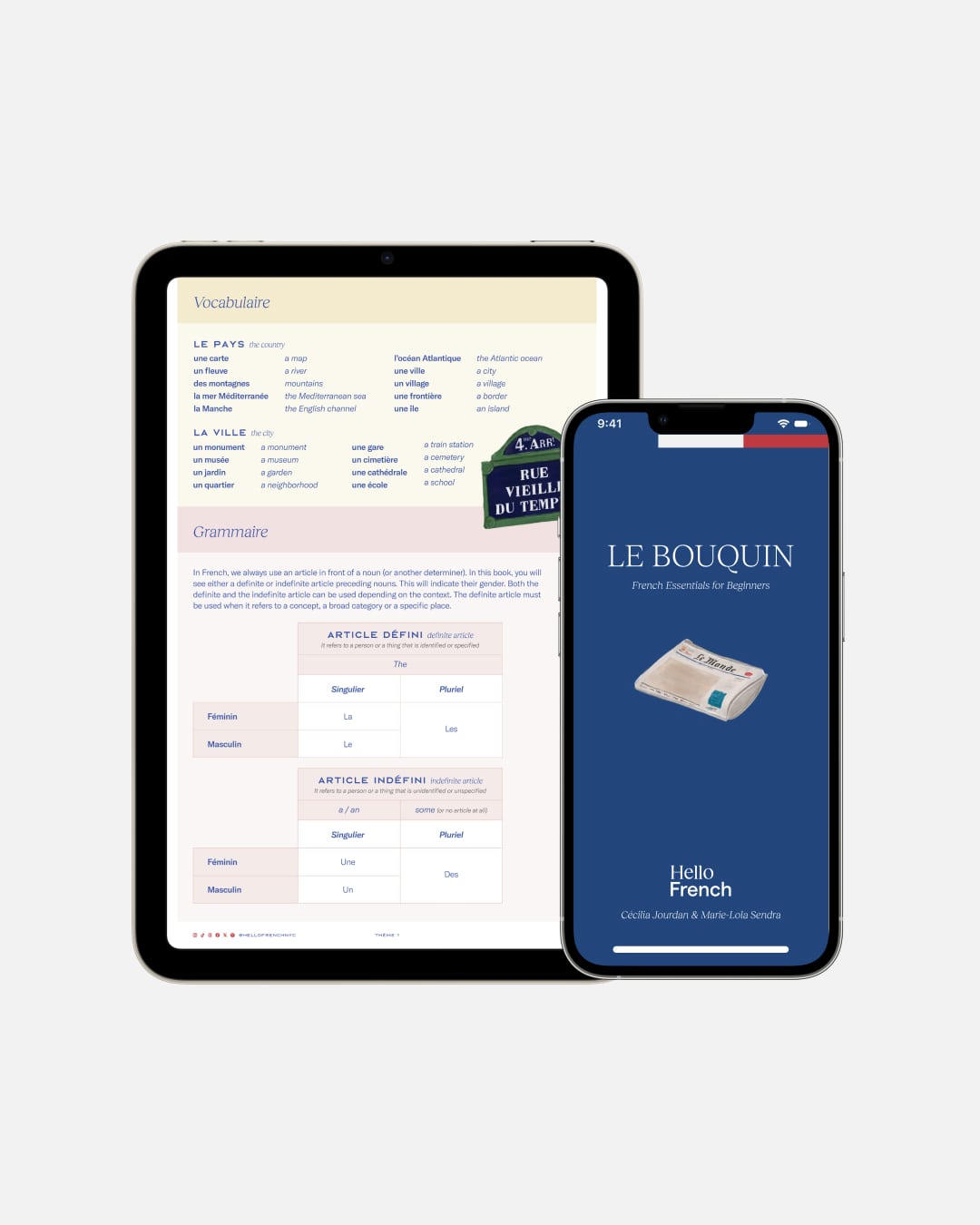
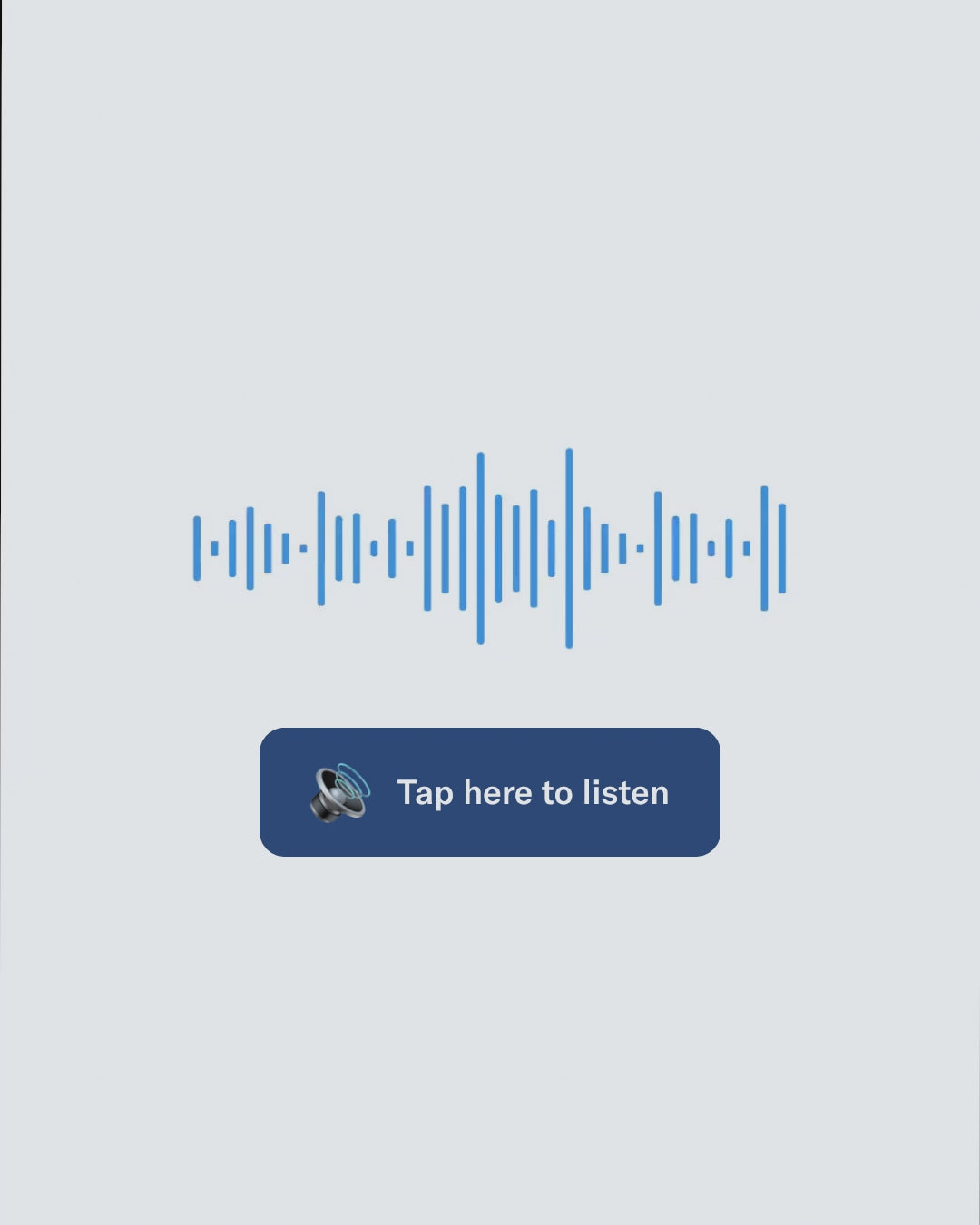
Le Bouquin French Essentials for Beginners
Have you always dreamed of learning French? We promise it doesn’t have to be as difficult as Parisians can be.
Co-authored by longtime French instructors Cécilia Jourdan and Marie-Lola Sendra, Le Bouquin (slang for “book”) was designed to teach French the way we love it: fun, modern, approachable, and inclusive.
Our method is intuitive and in-depth, perfect for beginners or those looking to brush up their high-school French. We’re big fans of proper grammar and rich vocabulary but, more importantly, we wrote this manual to give you the confidence to speak modern-day French like a natural. Now go on and book that trip to France!
65 pages. PDF Format.
Original illustrations & photography by J&P.
Non-refundable and non-sharable.
Table of Contents
What's Included







Table of Contents
- The geography of France
- Introduction
- L’alphabet
- Definite and indefinite articles (le/la/les/une/un/des)
- Cities and places in France
- ID Card
- How to introduce yourself
- Numbers 1-20, Verbs: être et avoir | Regular -ER verbs: parler et habiter | Préposition à | Contracted article | Liaison
- Jobs and nationalities
- Greetings and manners (tu vs. vous)
- Addressing someone you don’t know
- Paris districts (arrondissements) and monuments
- Conversations in public transportation (subway, taxi, bus, biking or walking)
- Means of transportation and directions
- Verbs: prendre, aller, faire | 3 ways to ask questions | Prepositions for places
- Fun facts about the Paris subway
- Hotel conversation
- Verbs: dormir, partir, devoir | Locution il y a | How to ask for the time | Negation (ne…pas)
- Vocabulary of hotels and accommodation | Moments of the day
- Hotels in Paris
- Conversation at the bakery and at a café
- Breakfast pastries, breads, and coffees
- Verb: vouloir | Adverbs | Tense: Near future (le futur proche)
- What not to say at a bakery, café, and restaurant!
- Dialogue at a restaurant with a server
- Partitive article (de la, du, de l’, des, de, d’) | Expressions with avoir | Tense: Conditional
- Vegetables | Fruits | Restaurant menu items | Meals of the day | Paying at a restaurant
- Cécilia’s dad’s restaurant in Paris (Le Colimaçon) and a secret password to get the VIP treatment there
- Conversations at the museum
- Demonstrative adjectives (ce, cet, cette, ces) | The imperative mode
- Types of cultural places | Museum vocabulary
- Paris museum recs | Types of museum tickets in France
- Conversations at the clothing store | Conversations between friends
- Reflexive verbs | Verbs for shopping | Qualifying and possessive adjectives (mon, ma, mes, ton, ta, tes, son, sa, ses)
- Clothing items | Beauty | The bookstore
- French slang | Where to shop in Paris (best streets and store recs)
- Numbers to call in France in case of an emergency
- How to make an appointment | Dialogue at the doctor’s office
- Modal verbs (devoir, falloir, pouvoir) | How to express pain with avoir
- Health issues | Types of doctors | Self-care places
- Speak like a native (expressions, slang, and curse words)
- French music
What's Included
Grammar: essentials of sentence structure and conjugation
Vocabulary: conversation and everyday phrases
Communication: how to navigate common situations in France
Cultural tips: French etiquette and how to live the French way of life
Emergency kit: where to go and who to call in case of an emergency
Pronunciation guide: 100+ recorded French sounds with detailed explanations
Dialogues: 25+ recordings of French conversations and vocabulary
Who is this for?
1. French students
- with little to no experience
- with some limited knowledge (your high school classes count!)
- who know the basics but want to refresh their knowledge and continue learning – in a new way
2. People visiting France (or another French-speaking country)
- who want to prepare for their trip
- who need a crash-course of key phrases to interact with the locals
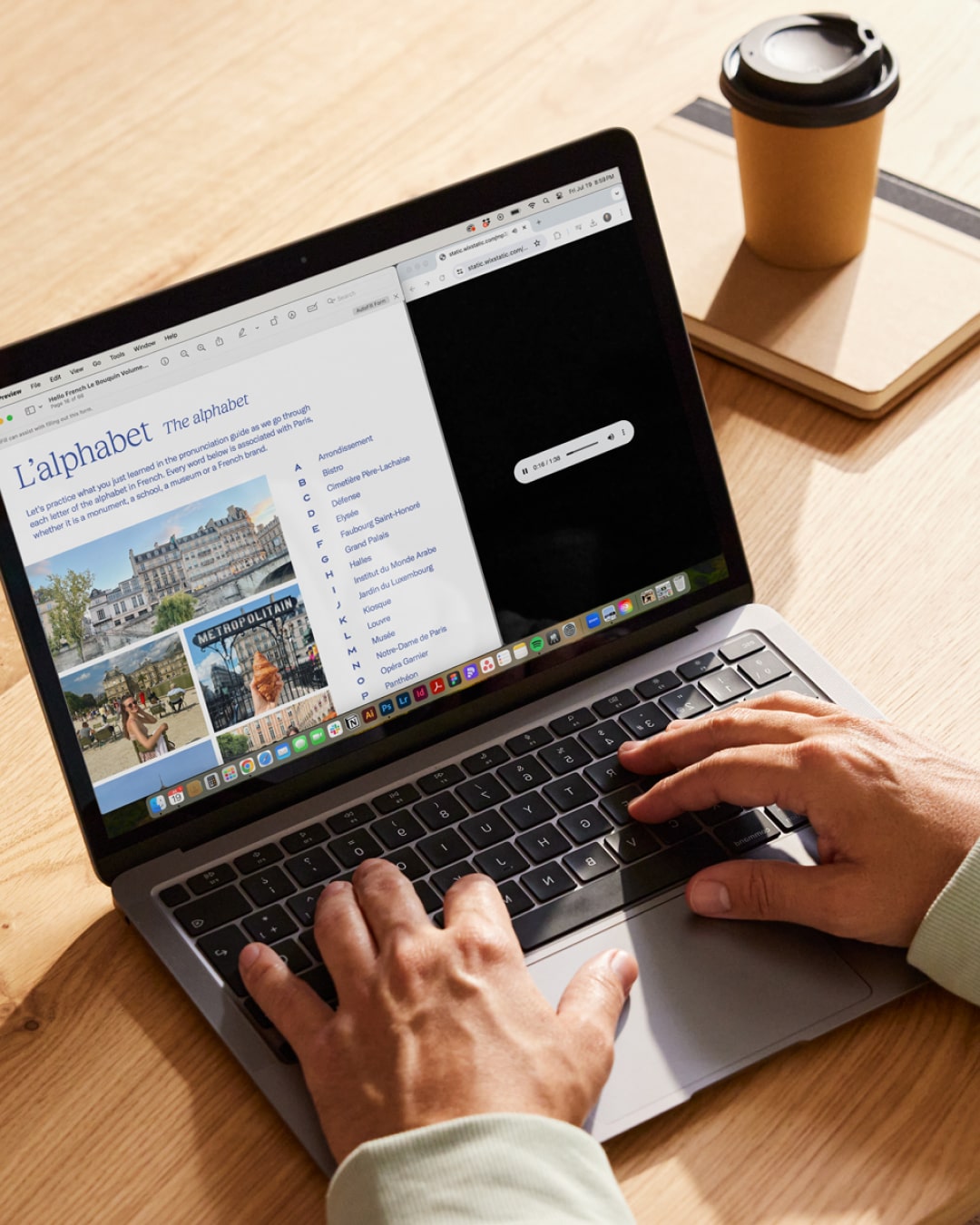
What you’ll learn
- How to talk about yourself and have relaxed conversations, so you can make new friends
- How to navigate, make appointments, and get what you need (don’t rely on Google to translate!)
- How to use everyday slang and idiomatic expressions that will help you sound more like a native speaker
